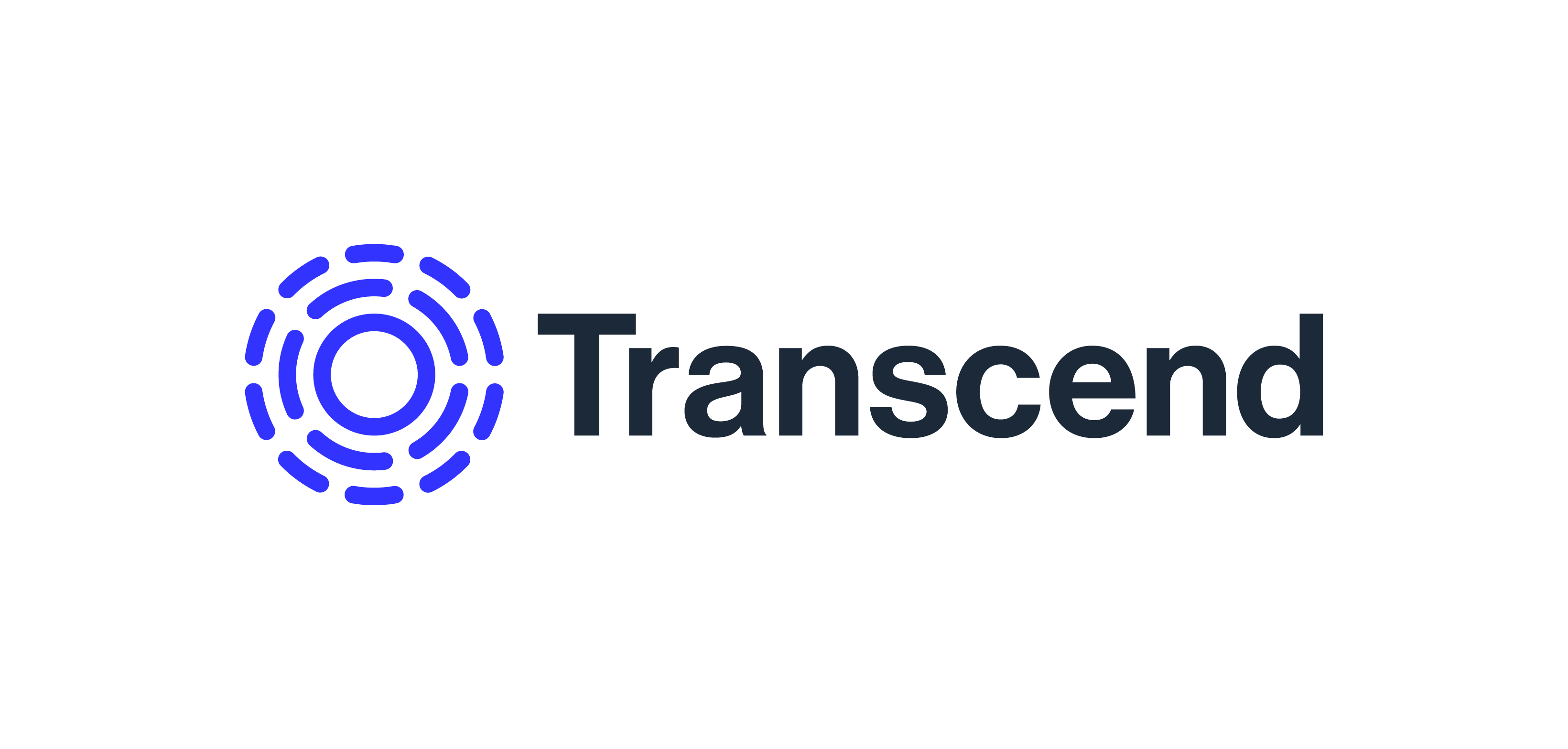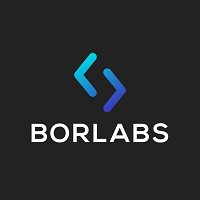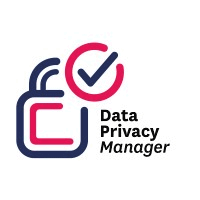Yes, consent management platforms (CMPs) are meant to be scalable and cross-device compatible, enabling for smooth access and use across numerous devices and platforms. This ensures that consumers may manage their consent preferences uniformly across devices and platforms. This also benefits businesses because it allows them to maintain compliance and transparency throughout all user interactions, regardless of device or platform.
List of 20 Best Consent Management Platform
CookiePro is a consent management platform trusted by over 750,000 websites across the globe. Seamlessly manage billing, subscriptions, and privacy preferences within the application to stay compliant with global regulations. With CookiePro, enjoy a...Read More CookiePro
CookieYes is solution for keeping your website compliant with privacy laws. Our advanced features, including customizable consent banners, automatic scanning, and detailed reports, help you build trust with your audience and maintain transparency. By...Read More CookieYes
Usercentrics is a consent management solution for businesses seeking data privacy compliance while maintaining effective marketing strategies. Trusted globally for its excellence, Usercentrics seamlessly integrates with websites and offers unparallel...Read More Usercentrics
ConsentCheq solution for managing notice and consent in accordance with GDPR, COPPA, and CASL regulations. Seamlessly integrate our platform into your business, track consent securely, and scale your options to fit your unique needs. Gain a competiti...Read More ConsentCheq
Transcend.io is a compliance solution for businesses. Our platform simplifies the management of user data rights, allowing for easy access, retrieval, and deletion of customer data. With our automated and efficient solution, fulfilling privacy reques...Read More Transcend.io
iubenda, the highly reliable legal compliance software trusted by over 100,000 businesses globally. Easily create and manage privacy policies, cookie banners, and terms and conditions to meet international legal standards for your website or app. Str...Read More iubenda
Quantcast is an intelligent AI-based software that enhances the performance of your advertising agency by leveraging cutting-edge technology. It offers a dynamic business model customized to your agencys requirements, providing valuable insights into...Read More Quantcast
Axeptio solution for consent management. Our user-friendly platform transforms cookie banners into interactive experiences. Trusted by 60,000 businesses, Axeptio ensures GDPR compliance and enhances user engagement and brand credibility effortlessly...Read More Axeptio
Control.My.ID is a privacy protection software. Take control of your personal data with ease as our intuitive platform allows you to monitor and manage your digital footprint effortlessly. With our tool, stay informed, secure, and in control of your...Read More Control.My.ID
Securiti is a data management platform that combines security, privacy, governance, and compliance functionalities. It seamlessly integrates with various systems, simplifying data control and ensuring safe handling of sensitive data in hybrid multicl...Read More Securiti
MineOS - an award-winning data governance tool designed to cater to your compliance needs. Its flexible features, including data discovery, classification, and privacy management, simplify DSR processing and promote trust within your company. Leverag...Read More MineOS
TRUENDO is a solution for effortlessly generating GDPR and ePrivacy-compliant privacy policies for your website. Our policies are automatically updated and enable you to have complete control over the personal data that is collected and shared with e...Read More TRUENDO
Borlabs Cookie, a WordPress tool, helps websites comply with GDPR and ePrivacy laws. Its simple opt-in system enables visitors to easily manage their cookie preferences. The software has features like automatic updates, geo-restriction, and IAB TCF 2...Read More Borlabs Cookie
Ketch is a privacy solution for data-driven enterprises. This revolutionary software ensures swift compliance with regulations, seamlessly integrates with over 1000 platforms, and minimizes business liabilities. With Ketch, experience top-notch data...Read More Ketch
Operandio is a operations management software that revolutionizes frontline productivity and conformity with protocols. Say farewell to traditional paper checklists and welcome streamlined digital procedures. Our user-friendly platform simplifies tra...Read More Operandio
Data Privacy Manager is a software that streamlines personal data management and ensures GDPR compliance. By automating data removal, assessing risks, and managing consent, businesses can prioritize their core tasks while upholding data privacy. Simp...Read More Data Privacy Manager
4Comply - the leading SaaS platform designed to enhance growth while prioritizing privacy compliance. Streamlined features such as consent management, citizen rights compliance, and permission verification empower businesses to simplify their complia...Read More 4Comply
Cookiebot is a consent management platform designed to help website owners comply with data privacy laws globally. It offers automated cookie scanning, streamlined consent collection, and seamless integration for a secure and trustworthy user experie...Read More Cookiebot
Say hello to Right Consents - your ultimate solution for managing user consent and preferences while complying with GDPR guidelines. Our software offers a seamless and transparent approach to handling data, gaining trust and boosting user confidence...Read More Right Consents
ConsentManager.net is a consent management software that adheres to GDPR and CCPA guidelines. Boasting of multilingual support and customizable designs, it provides a seamless experience for website owners and their visitors. Its advanced components...Read More ConsentManager.net
Learn More About Consent Management Platform
- What Is Consent Management Platform?
- What Are The Recent Trends In Consent Management Platform?
- Benefits Of Using Consent Management Platform
- Important Factors To Consider While Purchasing Consent Management Platform?
- What Are The Key Features To Look For In Consent Management Platform?
- Why Do Businesses Need Consent Management Platform?
- How Much Time Is Required To Implement Consent Management Platform?
- What Is The Level Of Customization Available In Consent Management Platform?
- Which Industries Can Benefit The Most From Consent Management Platform?
- Conclusion
What Is Consent Management Platform?
A Consent Management Platform (CMP) is a software platform that enables enterprises and organizations to manage user consent and preferences for data collection and processing. In today's digital landscape, user privacy and data protection have emerged as key concerns, making consent management an essential component for organizations to comply with various privacy rules such as GDPR and CCPA.
A CMP allows enterprises to gather, store, and manage user consent and preferences across multiple channels and devices. It enables organizations to personalize and integrate consent and preference forms on their websites and apps, granting users greater control over their data. The technology also allows organizations to track and document changes in user consent and preferences, assuring continuing compliance and transparency.
One of the most important characteristics of a CMP is the ability to allow users to opt-in or opt-out of specific data processing activities, such as targeted advertising or data sharing with third parties. This allows users to make more informed decisions about their data and builds trust in the company. Furthermore, CMPs give organizations with important insights and statistics on user consent and preferences, allowing them to optimize data collection and processing methods while remaining compliant with privacy requirements.
When selecting a CMP, it is critical to evaluate issues like as usability, customization choices, interoperability, data security, and compliance capabilities. Finally, a dependable and powerful CMP may help organizations create trust with their consumers while mitigating the risks and costs of noncompliance, making it a worthwhile investment in today's data-driven environment.
What Are The Recent Trends In Consent Management Platform?
In recent years, data privacy and protection have received a lot of attention and importance. This has resulted in the growth of Consent Management Platforms (CMPs) as a critical option for organizations to ensure compliance with privacy laws and regulations. As the market for CMPs increases, buyers should be mindful of some developing themes when selecting a CMP for their business.
1. Expanding Legal Frameworks: The implementation of the General Data Protection Regulation (GDPR) in Europe and the California Consumer Privacy Act (CCPA) in the United States has resulted in a shift toward more comprehensive data protection laws that require businesses to obtain users' explicit consent before collecting and using their personal information. This has resulted in the creation of more advanced CMPs that can meet these tougher criteria.
2. Concentrate On User Experience: CMPs are more than simply about compliance; they also aim to provide a great user experience. In order to gain valid consent, CMPs must explicitly educate users about their data collecting and processing procedures. Recent trends indicate that CMPs are introducing user-friendly interfaces, tailored consent alternatives, and streamlined consent language to improve the overall user experience.
3. Integration Of Marketing Technology: CMPs are increasingly being connected with other marketing technology solutions, including Customer Data Platforms (CDPs) and Digital Experience Platforms (DXPs). This enables firms to have a more comprehensive understanding of their customer data and develop more personalized marketing tactics while remaining compliant with privacy laws.
4. Application Of AI And Machine Learning: As the volume of data increases, manually managing and updating consent settings becomes a difficult effort. This has resulted in the introduction of AI and machine learning capabilities into CMPs, which may automate data mapping, consent tracking, and consent renewals, hence increasing efficiency and accuracy.
5. Emphasis On Consent Transparency: CMPs now provide full consent reports to enterprises, allowing them to demonstrate compliance with privacy laws and regulations. This not only helps to create consumer trust, but it also provides organizations with insights into user preferences and habits that can be used to guide marketing campaigns. Overall, recent trends in Consent Management Platforms indicate a shift toward more comprehensive and user-friendly solutions for organizations navigating the difficult terrain of data protection. As businesses grow and evolve, it is critical to select a CMP that can meet current and future compliance requirements while also providing a great user experience.
Benefits Of Using Consent Management Platform
Consent management platforms (CMPs) have become increasingly important to organizations in the digital age. With the emergence of data privacy legislation like the General Data Protection Regulation (GDPR) and the California Consumer Privacy Act (CCPA), businesses must now get consumers' explicit consent before collecting, processing, or storing their personal information. CMPs enable organizations to manage their consent requirements in a thorough and efficient manner.
Here are the main advantages of employing a consent management platform:
1. Streamlined Compliance: CMPs provide enterprises with a consolidated platform for managing and tracking user consent. This ensures that organizations follow numerous data privacy rules and regulations while saving time and resources on manual processes.
2. Increased User Trust: A CMP allows organizations to express their data collection and usage policies to users in a transparent manner, fostering trust and enhancing customer relationships. This can ultimately result in improved user engagement and loyalty.
3. Improved Data Accuracy: A CMP enables organizations to acquire accurate and relevant user consent data, resulting in higher data quality and more exact audience targeting. This, in turn, can result in higher ROI for marketing initiatives.
4. Customization And Flexibility: CMPs provide configurable consent management procedures, enabling businesses to adjust the process to their specific requirements and preferences. This flexibility guarantees that organizations can satisfy the specific needs of various areas and industries.
5. Risk Mitigation: By efficiently handling user consents, organizations can reduce the risk of noncompliance penalties and possibly legal action. CMPs provide audit trails and documentation that can assist firms demonstrate compliance with data privacy rules if necessary.
6. Simplified Data Subject Requests: Data privacy laws grant users the right to access, update, or delete their personal information. Businesses can simply handle these requests with a CMP and ensure that they are delivered on time and in compliance.
Important Factors To Consider While Purchasing Consent Management Platform?
When choosing a Consent Management Platform (CMP), it is critical to consider a variety of aspects to ensure that the platform matches your unique needs and expectations. Here are some of the most significant elements to consider while making your decision:
1. Compliance With Rules: The primary goal of a CMP is to assist your firm in complying with data protection rules such as the General Data Protection Regulation (GDPR) and the California Consumer Privacy Act. As a result, it is critical to select a platform that is compatible with these requirements and has capabilities to assist you manage user consent and data protection properly.
2. User-Friendly Interface: Your CMP should have a simple interface that allows you to manage and personalize your consent notices and options. Your website visitors should be able to easily understand and access their consent settings. A well-designed interface can significantly improve the entire user experience.
3. Customization Options: When it comes to user consent management, each company has distinct demands and requirements. Your CMP should include customization options, allowing you to personalize the consent messages and alternatives to your organization's specific needs. This could include things like language, design, and the types of data you collect.
4. Integration Capabilities: A CMP should be able to work smoothly with your current websites, applications, and systems. This enables more effective and streamlined administration of user consent and data privacy. Before purchasing a CMP, be sure to investigate its compatibility and integration capabilities.
5. Transparency And Accessibility: Transparency is an important part of data privacy, and your CMP should reflect this. It should include clear and simple information about your data collecting and usage methods, as well as quick access to users' permission settings and options. This can help to increase trust among website visitors and boost your organization's reputation.
6. Reliability And Security: Data privacy is a major concern for both corporations and their users. As a result, it is critical to select a CMP that is trustworthy and safe. Look for certifications and security measures that the supplier has implemented, such as GDPR compliance, SSL encryption, and frequent system audits.
7. Scalability And Future-proofing: Investing in a CMP is a long-term commitment, so select a platform that can expand with your firm. Consider the platform's scalability and future-proofing capabilities to guarantee it can respond to changes in rules or industry standards.
What Are The Key Features To Look For In Consent Management Platform?
A consent management platform (CMP) is an essential tool for firms that gather and analyze user data. It assists firms in complying with numerous privacy rules, including GDPR, CCPA, and ePrivacy. With the growing emphasis on data privacy and the increasing frequency of data breaches, it is critical for businesses to invest in a dependable CMP to develop confidence with their consumers and avoid costly fines. When selecting a CMP for your company, here are the essential aspects to look for to ensure its efficacy and suitability:
1. Consent Gathering And Management: A CMP should include a simple interface for capturing and managing user consents for data processing activities. It should provide a variety of permission alternatives, including opt-in, opt-out, and granular preferences, to meet diverse privacy needs.
2. Policy Management: The platform should allow you to build and adjust privacy rules and cookie banners based on your business requirements. This includes the ability to update policies, track revisions, and make them readily available to users.
3. Data Subject Rights Management: Under legislation such as GDPR and CCPA, individuals have the right to view, remove, or correct their personal information. A good CMP should allow you to efficiently manage data subject requests and have an audit trail to prove compliance.
4. Data Processing Records: Maintaining records of all data processing activities is critical for demonstrating regulatory compliance. Look for a CMP that keeps a detailed record of data flows, including what data is gathered, where it is stored, and with whom it is shared.
5. Consent Expiry And Renewal: To maintain continuous compliance, a CMP should be able to define consent expiry dates and automate renewal requests from users. This function saves time and effort for both the organization and its users.
6. Vendor Management: A CMP should enable enterprises to manage and monitor third-party vendors' data processing operations, as well as their compliance with privacy regulations. This functionality is especially valuable for firms that operate with different vendors and must maintain data security requirements.
7. Integration Capabilities: Your CMP should work seamlessly with other tools and systems in your IT stack, such as your website, CRM, or marketing automation platform. This improves data processing efficiency and guarantees consistency across all touchpoints. When choosing a CMP for your organization, keep these crucial elements in mind to make an informed decision. Consider your organization's specific demands and priorities when selecting a solution that best meets your needs while also allowing you to comply with privacy standards.
Why Do Businesses Need Consent Management Platform?
In today's increasingly digital age, corporations acquire and process more personal data than ever. With the introduction of regulations such as the General Data Protection Regulation (GDPR) and the California Consumer Privacy Act (CCPA), organizations must get individuals' explicit consent before collecting and utilizing personal information. Here's where a Consent Management Platform (CMP) comes in.
It is an essential tool for firms seeking to comply with data privacy requirements while also building customer trust. A consent management platform (CMP) is a centralized system that enables organizations to obtain, store, and manage user consent for data collection and processing. Businesses that use a CMP can streamline their consent management processes, saving time and resources while remaining compliant with laws and regulations.
Customers benefit from more openness, which allows them to understand and control how their data is utilized. Furthermore, a CMP can assist organizations in tailoring their marketing tactics by gathering and tracking user consent for targeted advertising. This leads to a more efficient and successful marketing strategy, which results in more consumer engagement and ROI.
As data privacy standards grow and become more rigorous, having a CMP in place is critical for organizations that want to secure their customers' personal information and avoid costly fines. It also demonstrates a commitment to ethical data procedures, which enhances the company's brand and reliability.
How Much Time Is Required To Implement Consent Management Platform?
The time required to implement a Consent Management Platform (CMP) varies depending on factors such as the complexity of your website, the number of integrations required, and the level of customization needed. On average, fully implementing a CMP can take anything from a few days to a few weeks. The first step in setting up a CMP is to add a JavaScript code snippet to your website, which takes only a few minutes.
This code loads the consent banner and manages user preferences. However, setting the CMP for your website's specific needs may take some effort. The next step is to connect your website's consent data into the CMP. This entails configuring integrations with other third-party marketing and tracking platforms used on your website.
The time required for this stage is determined by the number of integrations and their complexity. If you choose a completely customizable CMP, the implementation process may take longer because the consent banner, pop-ups, and user interface must be designed and tweaked to match the identity of your website. However, most CMPs provide pre-designed templates that can be quickly changed, reducing deployment time.
Furthermore, training your team on the CMP's features and operation may require some effort. CMPs provide a variety of capabilities such as consent management, data subject requests, and reporting, so acquaint your staff with these functionalities to get the most out of the platform. Overall, the time required to install a CMP may vary, but it is critical to allocate enough time and resources to ensure a smooth and efficient setup.
A well-implemented CMP allows you to successfully manage user consent and compliance with data protection requirements, which can benefit your organization in the long run.
What Is The Level Of Customization Available In Consent Management Platform?
The level of customisation possible in a Consent Management Platform (CMP) differs substantially between suppliers. However, the bulk of CMPs provide a significant degree of customisation to match their clients' demands. Some of the most frequent customization options in a CMP include the opportunity to select which consent banner or pop-up is displayed, the banner's appearance and layout, language options, and the ability to add or delete particular categories of cookies and tracking technologies.
Furthermore, many CMPs include additional customization options including the ability to construct different consent scenarios for specific user groups, providing for a more targeted and specialized approach to gaining consent. Furthermore, some CMPs provide connectors with a variety of third-party applications and platforms, allowing users to further personalize and improve their consent management experience.
Buyers should carefully assess the level of customization given by a CMP before making a purchase choice, as a highly customizable platform can deliver a more seamless and personalized experience for both the customer and the website owner.
Which Industries Can Benefit The Most From Consent Management Platform?
In today's digital landscape, organizations must comply with privacy rules and regulations like the General Data Protection Regulation (GDPR) and the California Consumer Privacy Act (CCPA). A Consent Management Platform (CMP) helps businesses accomplish compliance by managing user consents for data collection and processing. However, the benefits of a CMP extend beyond privacy compliance and into a variety of businesses.
1. E-Commerce: With the growing number of consumers purchasing online, e-commerce enterprises can considerably benefit from a CMP. E-commerce enterprises can increase customer trust and credibility by gaining explicit agreement from users before collecting and exploiting their personal data. A CMP can also assist these organizations in tailoring their marketing efforts, resulting in greater conversion rates and client satisfaction.
2. Media And Publishing: Online advertising is a major revenue source for publishers and media companies. A CMP allows these businesses to acquire user consent for tailored and targeted adverts, guaranteeing compliance with privacy rules. A CMP can also provide users with more control over their data, increasing their likelihood of engaging with online adverts and content.
3. Healthcare: The healthcare business collects and processes sensitive personal information on a daily basis. A CMP can assist healthcare institutions in obtaining patient consent before sharing their data with third parties, ensuring compliance with privacy rules. Furthermore, by granting patients authority over their data, a CMP can boost confidence between healthcare practitioners and patients.
4. Banking And Finance: Banks and financial institutions have made personal and financial data security a major concern. A CMP can assist these firms in obtaining customer consent for data collection and processing, thereby guaranteeing compliance with privacy laws. It can also help these firms create trust and loyalty with their customers by being open about their data usage.
5. Education: With the proliferation of online education and e-learning, educational institutions now have access to massive volumes of student data. A CMP can assist these institutions in obtaining consent from students, parents, and guardians before collecting and using personal information. It can also help them comply with privacy rules and establish strong bonds with students and their families. To summarize, a Consent Management Platform is an important tool for organizations in a variety of industries to comply with privacy rules, develop trust and openness with their customers, and improve their marketing operations. When selecting a CMP, it is critical to select a solution that addresses the unique needs of your industry and matches with your business objectives.
Conclusion
In today's digital environment, privacy and data protection are becoming increasingly crucial to both organizations and consumers. With the implementation of GDPR and other data privacy legislation, firms must now get explicit agreement from website visitors before using their personal information. This is where Consent Management Platforms (CMPs) come into play.
A CMP is a software solution that enables enterprises to collect, store, and maintain user consent preferences in line with data protection rules. In this buyer's guide, we've gone over the important features and concerns to bear in mind when selecting a CMP for your organization. From assessing your organization's specific objectives and budget to assessing the platform's compatibility with your website and data privacy regulations, we have covered all of the bases for a successful CMP acquisition.
It is critical to thoroughly analyze these elements before making a selection to ensure that the CMP corresponds with your company's aims and objectives. With the appropriate CMP, you can not only assure compliance with data privacy requirements, but also foster a more transparent and trustworthy connection with your clients. It is vital to highlight that a CMP is not a one-time investment, but rather a continuous process that requires frequent monitoring and upgrading.
Finally, selecting the correct CMP for your company will not only secure your customers' data and ensure compliance with legislation, but will also improve your brand's reputation and demonstrate your dedication to data privacy. We hope our buyer's guide has given you helpful information and enabled you to make an informed decision about your organization's CMP requirements.
Consent Management Platform FAQ's
Can Consent Management Platform Be Accessed Across Multiple Devices And Platforms?
Is Consent Management Platform Future-Proof And Adaptable To Emerging Technologies Like Ai, Blockchain Or Iot?
Yes, most modern Consent Management Platforms (CMPs) are intended to be future-proof and adaptable to new technologies. They are created with a modular architecture that allows for easy integration with AI, blockchain, and IoT systems.
As data privacy regulations and consumer expectations change, CMPs must regularly upgrade their features and functions to remain compliant and adapt to new technologies. This means that organizations can confidently manage user permission and remain competitive in the continuously changing digital market.
Is There A Free Trial Offered To Assess Consent Management Platform Before Committing?
Yes, most consent management platforms provide a free trial period in which users can evaluate the platform before committing to a subscription. This allows organizations to test the platform's features, functionality, and user experience. It also helps them decide whether the platform can suit their specific consent management requirements. The trial period may last from a few days to a month, depending on the provider.
Does Consent Management Platform Offer Data Security Features And Meet Regulatory Compliance Standards?
As a comprehensive solution for managing user consent, a Consent Management Platform (CMP) provides strong data security capabilities to secure personal information and ensure regulatory compliance. These include encryption and anonymization techniques, tracking and auditing of user consent, and privacy policy templates that adhere to GDPR, CCPA, and PIPEDA regulations. Businesses that adopt a CMP can ensure they handle user data safely and in accordance with data privacy requirements.
Can Consent Management Platform Integrate Seamlessly With Existing Tools And Platforms?
Yes, a Consent Management Platform (CMP) can work smoothly alongside existing tools and platforms. Many CMPs include built-in APIs that make it simple to integrate with website builders, analytics tools, marketing platforms, and other applications. This guarantees that your organization's data privacy procedures are uniform across all channels and platforms, making it easier to meet regulatory requirements and develop confidence with your audience.






















